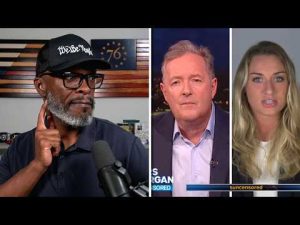In a world where entitlement too often runs rampant, the message from a West African gentleman infiltrating the social media airwaves brings a refreshing, no-nonsense perspective on protests and personal responsibility. He passionately challenges the choice of spending time protesting, especially against the backdrop of ample opportunities in America, the land many see as the beacon of hope and prosperity. His striking observations from the other side of the world provide a potent reminder of the fundamental values that have allowed America to become the best country on earth.
Upon further inspection of his message, one thing is clear: the importance of contributing to the economy is paramount. Instead of forming picket lines, he argues that individuals should be working toward the betterment of society. Saturdays aren’t just for leisure or protest—they’re for participating in the country’s economic strength. Each American’s contribution to the economy is a building block for national greatness, and anything less may well be a missed opportunity. There’s a sense of urgency in his words, underscoring just how vital personal responsibility is in shaping America’s future.
The gentleman’s anecdotes draw stark contrasts between American prosperity and African realities. In parts of Africa, if you don’t work, you don’t eat. This is not a mere exaggeration; it’s an everyday reality. When he speaks of “cash and carry,” the message is clear: without effort, survival is impossible. His point is not to chastise, but to remind Americans that privilege and opportunity should not be taken for granted. In the United States—a nation perceived by many as fundamentally abundant—even the so-called “poor” enjoy amenities others might only dream of, like having access to ample food. This incongruity between perceived hardship and real opportunity must be addressed.
Such insights could not be more relevant as discussions about Trump evoke seemingly endless passions. The divisive nature of political discourse often masks the blessings enjoyed by those born on American soil. By highlighting the uniqueness of American freedoms, he invites everyone to reconsider what is truly being protested. Getting caught up in the fervor of last-minute fury distracts from core values of hard work and patriotism that are essential to maintaining national integrity. America’s past presidents, such as JFK, once posed that pivotal question that prompts reflection: What can you do for your country?
Ultimately, the message implores us to embrace gratitude and constructive participation. In a world abundant with freedom, it’s easy to forget the importance of seizing opportunities. Before joining the chorus of discontent, it is necessary to ask whether one’s actions actively contribute to the improvement of the world we share. As this West African gentleman articulate so clearly, the decline of American unity cannot simply be met with protest, but with action and responsibility. Only through this lens can we maintain the greatness of America for future generations.







